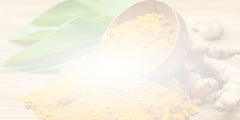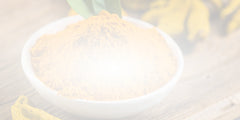
Keeping track of your health can be challenging. While most biological factors are essentially out of our control, we can manipulate other details in ways that can either improve or damage our overall health. This manipulation of our health can often be turned to our benefit to help compensate for any deficiencies or overarching health issues. This has led to the rise of supplement use to help tailor the body's biological and chemical balances to align with normal levels. One of the most popular supplements for this purpose is turmeric.
Turmeric has become a beloved supplement for people worldwide and has staked a solid claim in holistic medicine. Turmeric curcumin's health benefits are becoming more well known as its use increases. Unfortunately, most supplementary products must be used responsibly to avoid potentially harmful effects.
One of the most important details of responsible supplement use is avoiding negative interactions with other vitamins or medications. Knowing which supplements can safely interact with turmeric curcumin is essential for anyone looking to reap the benefits the former has to offer. Fortunately, that information is easier to come by than you might have thought.
What Does Turmeric Do?
Before we can assess which vitamins and supplements you can use with turmeric, it is best to understand its effect on our bodies. The body can only withstand so much, and the products we consume to alter their functions can quickly overwhelm us if they are not understood. Turmeric curcumin has long been lauded for its health benefits, but those effects only work if the product is taken properly.
While its most famous function is as an anti-inflammatory, turmeric has been linked to several effects that are far more profound. The most important effect of curcumin is its effect on the cardiovascular system.

Turmeric has a powerful effect on the blood in our veins, allowing it to flow through the cardiovascular system more effectively. It does this by thinning the blood, which enables it to traverse the veins with minimal obstruction. Blood pressure and clotting are regulated by a part of the body called the endothelium.
When the endothelium's functionality decays, people use turmeric to pick up the slack until the body can heal. The blood thinning effects of turmeric curcumin have been evaluated through studies, including a 2019 review that confirmed curcumin could inhibit clotting.
While turmeric's ability to adjust clotting rates and thin blood has valuable benefits for our health, it is not something we can do carelessly. Blood thinning can be beneficial for the body in cases where cardiovascular health is at risk, but it can present a threat if your blood remains thinned for too long. We need clotting to survive any minor injuries as, without clotting, we could bleed out from the smallest cuts. This is why it is important to ensure the other supplements and vitamins you take have no impact on the health of your blood.
Do Not Combine With Blood Thinners
Turmeric curcumin's blood thinning effects, while beneficial to cardiovascular health, can prove detrimental if the blood remains thin for too long. Ordinarily, the blood thinning effects of compounds like curcumin are temporary, and the blood returns to its original state. While the body's natural recovery time from abnormal states is impressive, it cannot do so if the cause of the abnormal state is constant. Therefore, one of the worst things you can do is combine your turmeric curcumin supplements or vitamins with other blood thinners. While this might seem like a simple task, you might be surprised to learn that common over-the-counter medications and vitamins have anticoagulant qualities.

Some of the most common medications and vitamins in your home are anticoagulants and can harm your health when mixed with curcumin. Even substances as simple as garlic or vitamin E can cause thin blood. Combining them with curcumin makes the blood extremely thin and almost impossible for the body to survive. The same issue can arise with common household aspirins like Advil. When your blood becomes too thin, you become prone to excess bleeding, which puts you at risk of decreased cardiovascular health or even death in extreme cases.
Thin blood can lead to bleeding from the nose and gums even if there is no injury and can even yield blood in the stool or abnormally heavy periods in women. The issue with thin blood is that it makes it far easier for the blood to escape the body without an open wound. If you suffered an open wound under the effect of blood thinners, you could bleed out since your blood will not clot and stop the bleeding. This makes the consumption of anticoagulants in quick succession a potentially fatal situation. While mixing turmeric curcumin with other anticoagulant compounds is a health issue, you should avoid other substances.
Do Not Combine With Blood Sugar Medications
Another important thing to avoid when using curcumin is any medication or supplement that reduces blood sugar levels. This also means that diabetics cannot use curcumin since the substance plays its own role in the body's blood sugar levels.
Specifically, turmeric curcumin can lower the sugar level in the blood. Researchers identified this effect during a 2013 study. The study discovered that consuming curcumin lowered glucose levels in the body, which can be beneficial for those with abnormally high blood sugar but harmful to those with low blood sugar.
If our blood sugar becomes too low, we risk hypoglycemia, which can cause dizziness, fatigue, weakness, and possibly seizures. Therefore, it is important to ensure that curcumin is not accompanied by other vitamins or medications known to lower blood sugar levels. If combined with diabetes medication, sugar levels in your blood could plummet to dangerous levels and induce hypoglycemic results.

While blood sugar is difficult to manage, you might be surprised to learn that several supplements and foods are known to lower blood sugar levels. To name a few:
- Cinnamon
- Aloe Vera
- Ginseng
- Vitamin D
Because of the risks associated with low blood sugar, you must ensure you do not lower it further than necessary. Like with anticoagulants, combining other blood sugar inhibitors with curcumin can cause the effect to become amplified and lower levels beyond the intended range. While avoiding supplements and medications that interact with curcumin is important, another major detail must be considered. The detail in question is that some people cannot use curcumin at all without jeopardizing their health.
Health Exclusions
While combining curcumin with certain substances can produce harmful side effects, certain health conditions preclude you from using curcumin. When combined with curcumin, certain health issues can lead to the deterioration of our overall health.

This is because the effects of curcumin that benefit some are inherently harmful to those who suffer from the following conditions:
- Bleeding Disorders: As we mentioned before, curcumin's anticoagulant effects make the blood in our veins thinner than normal. While this is beneficial for improving cardiovascular health issues, it makes bleeds very dangerous. People with bleeding disorders are already prone to spontaneous bleeds that require the clotting factor to stop. When using substances like curcumin and anticoagulants, these bleeds' ability to clot is lost and could jeopardize your health and life.
- Gallbladder Issues: Another effect of turmeric curcumin is that it can sometimes increase the body's bile production. While bile is a naturally occurring substance, it also contributes to the development of gallstones and can inflame the bile ducts. Adding curcumin to your diet can worsen the situation if you are already suffering from gallbladder or bile issues.
- Anemia: Anemia is a very dangerous condition that impacts the body's ability to produce red blood cells. Without these cells, our blood does not get oxygenated properly and is no longer healthy. Red blood cells are primarily built with iron found in the body, but curcumin is known to inhibit iron absorption. This means curcumin can prevent the development of new red blood cells when combined with anemia.
These conditions directly conflict with the health benefits offered by curcumin, making its use by any with the conditions a poor decision. For this reason, you should consult with a physician before making any major adjustments to your diet or health habits. This consultation will help identify any potential risk of introducing curcumin to your regimen.
If you are aware of any pre-existing condition, staying away from curcumin and other supplements that interfere with them is much simpler. Unfortunately, avoiding curcumin due to certain health conditions is not the only issue, as there is one final thing that you will need to avoid.
Adulterated Curcumin
While mixing curcumin with curcumin is not inherently a problem, a lingering issue in the market turns the substance into a risk if the proper market is not found. In the early days of the curcumin market, there was a major problem with the contaminated product when it was being sold in its original market in India. Curcumin powder is traditionally assessed by its yellow hue, as the brighter hues indicate potency. Unfortunately, some vendors could not yield potent products, and the hue of the powder was well below expectation.
When these vendors fail to yield curcumin powder that meets the customer's expectations, the vendor will turn to adulterants to help the color match. The problem with adulterants is that the most common tool to adulterate curcumin is lead chromate, a heavy metal known for its toxic traits. Lead chromate was a popular adulterant for curcumin because this variant of the metal also had a bright yellow color that meshed with curcumin's famous color.

It is always frightening to learn that a product has been adulterated with anything, let alone metal. When dealing with adulterated curcumin, consuming a supplement that has been adulterated with lead chromate, you risk heavy metal poisoning. While adulterated curcumin is a different concept from mixing curcumin with other supplements, it is still a form of curcumin being combined with something that should not mix with it. The only difference is that your choice to avoid this mixture is taken away from you by disreputable vendors.
Heavy metal poisoning is lethal more often than not, making it crucial to find a reputable vendor for your curcumin. Otherwise, you risk finding yourself consuming something toxic and contracting a lethal illness. While avoiding adulterated curcumin is much easier now, especially in the United States, where the cultivation laws are stricter, it is still worth considering the risk.
The Nu Healthier You
Despite the risks outlined here, curcumin remains extremely valuable to anyone's diet. The substance is not inherently dangerous but must be used carefully to avoid potentially harmful interactions. A well-rounded assessment of your health and conditions is essential before introducing curcumin to your system.
Once you have been cleared of any of the conditions outlined in this article, you can begin the safe use of curcumin to bolster your health. While there are certainly a few harmful interactions with specific medications and vitamins, curcumin remains a viable health supplement whose effects cannot be discounted. The only remaining challenge is finding a reliable source of turmeric curcumin.

Fortunately, acquiring safe and effective curcumin is nowhere near as challenging as it was before. Nowadays, getting a viable curcumin supplement is as simple as a few taps on a keyboard, thanks to online commerce through modernized vendors. We at NuVitality offer curcumin supplements designed specifically to offer all the benefits that curcumin can provide.
We also add black pepper to our product to overcome curcumin's naturally low bioavailability, so you can rest assured you are getting what you paid for instead of something ineffective. Curcumin can be one of the most effective tools for improving your health when used properly, and we can provide the means. So, feel free to visit our website and try our product so you can take the first step to the Nu, healthier you.
Have any questions about turmeric curcumin, our curcumin supplements, or anything similar? If so, please feel free to contact us whenever you feel the need! We'll gladly answer any of your turmeric-related questions to the best of our ability!


![[Guide] Can You Take Turmeric With Your Other Vitamins?](http://nuvitality.us/cdn/shop/articles/A_Bowl_of_Powdered_Turmeric_1600x.jpg?v=1663544569)



